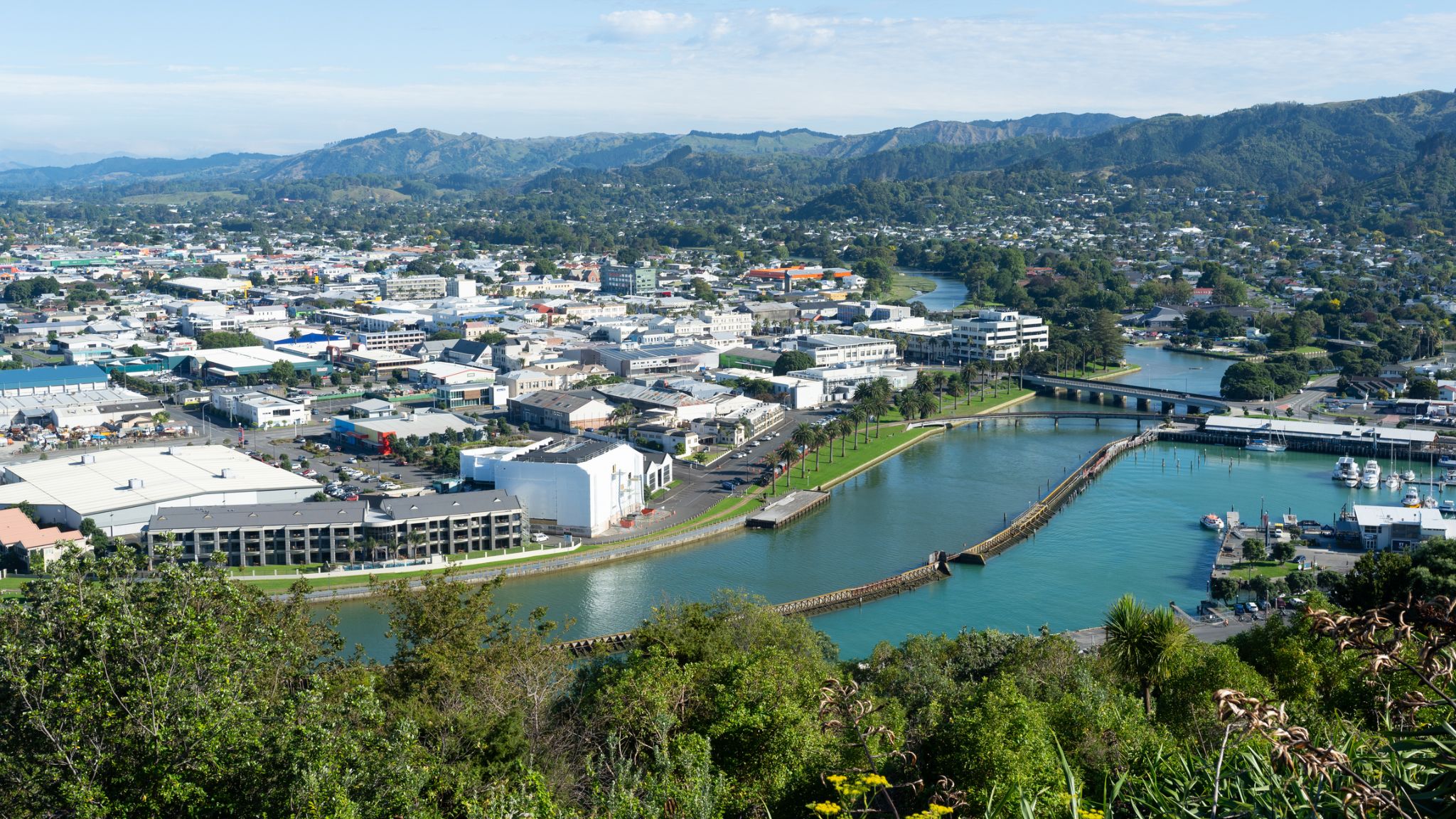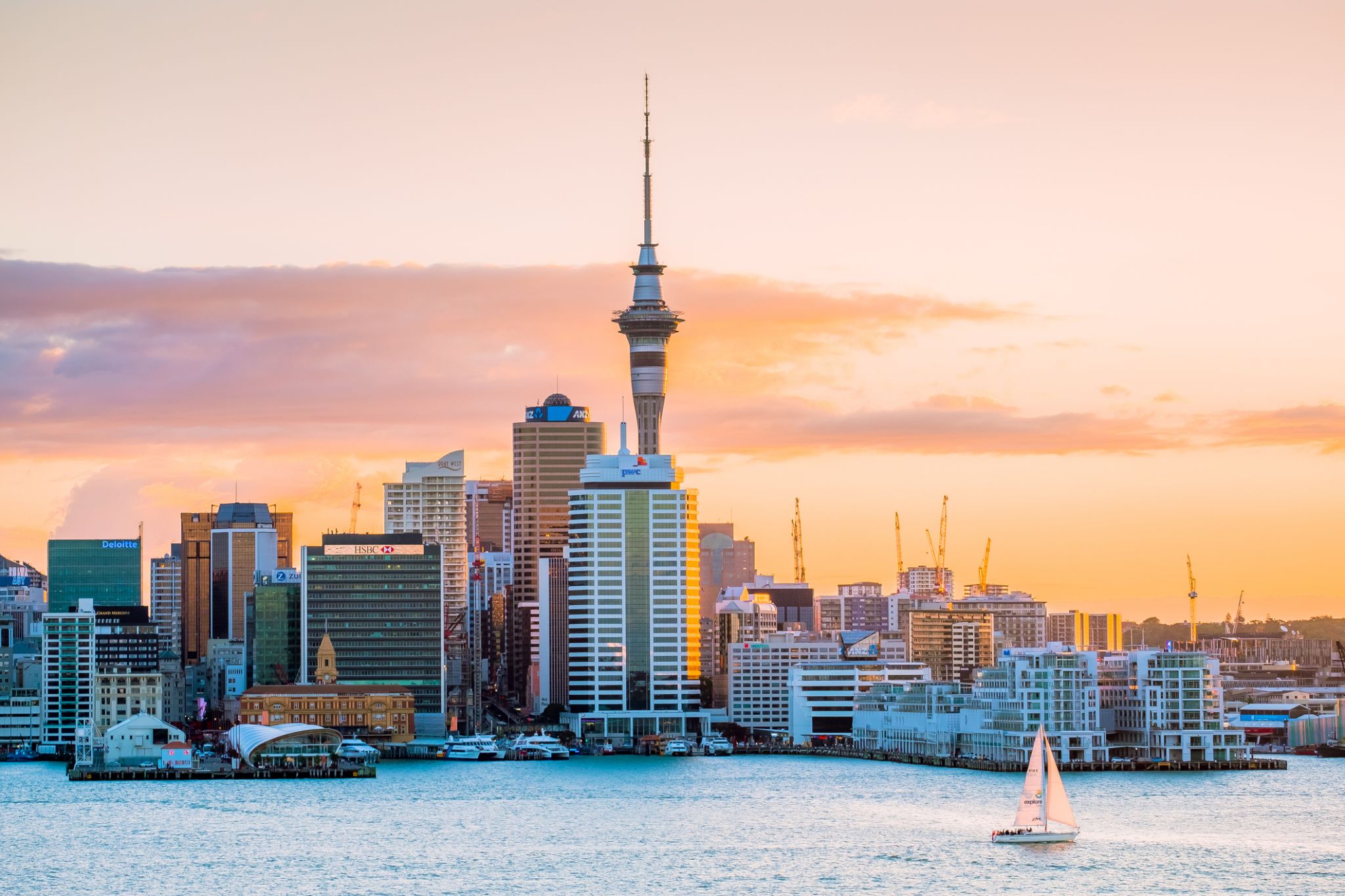

| Cruise Region : Oceania, Pacific cruises, Australia / New Zealand |
| Company : Oceania Cruises |
| Ship : Riviera |
| Journey Start : Tue 15 Dec 2026 |
| Journey End : Sun 24 Jan 2027 |
| Count Nights : 40 nights |
| Day | Date | Port | Arrival | Departure |
|---|---|---|---|---|
| 1 | 15.12 Tue | Sydney / Australia | 08:00 | 17:00 |
| 2 | 16.12 Wed | Day at sea / Sea | ||
| 3 | 17.12 Thu | Brisbane / Australia | 07:00 | 18:00 |
| 4 | 18.12 Fri | Day at sea / Sea | ||
| 5 | 19.12 Sat | WHITSUNDAY ISLAND | 07:00 | 16:00 |
| 6 | 20.12 Sun | Cairns / Australia | 09:00 | 21:00 |
| 7 | 21.12 Mon | Cooktown / Australia | 07:00 | 16:00 |
| 8 | 22.12 Tue | Day at sea / Sea | ||
| 9 | 23.12 Wed | Day at sea / Sea | ||
| 10 | 24.12 Thu | Darwin / Australia | 09:00 | |
| 11 | 25.12 Fri | Darwin / Australia | 17:00 | |
| 12 | 26.12 Sat | Day at sea / Sea | ||
| 13 | 27.12 Sun | Day at sea / Sea | ||
| 14 | 28.12 Mon | Komodo / Indonesia | 07:00 | 18:00 |
| 15 | 29.12 Tue | Tangjung Benoa / Indonesia | 12:00 | |
| 16 | 30.12 Wed | Tangjung Benoa / Indonesia | 17:00 | |
| 17 | 31.12 Thu | Praia / Cape Verde | 07:00 | 15:00 |
| 18 | 1.01 Fri | Waingapu | 11:00 | 18:00 |
| 19 | 2.01 Sat | KUPANG WEST TIMOR | 08:00 | 18:00 |
| 20 | 3.01 Sun | Day at sea / Sea | ||
| 21 | 4.01 Mon | Day at sea / Sea | ||
| 22 | 5.01 Tue | Day at sea / Sea | ||
| 23 | 6.01 Wed | Day at sea / Sea | ||
| 24 | 7.01 Thu | Perth | 07:00 | 19:00 |
| 25 | 8.01 Fri | Busselton / Australia | 07:00 | 16:00 |
| 26 | 9.01 Sat | Albany / Australia | 10:00 | 18:00 |
| 27 | 10.01 Sun | Esperance / Australia | 09:00 | 19:00 |
| 28 | 11.01 Mon | Day at sea / Sea | ||
| 29 | 12.01 Tue | Day at sea / Sea | ||
| 30 | 13.01 Wed | Adelaide / Australia | 07:00 | 17:00 |
| 31 | 14.01 Thu | Day at sea / Sea | ||
| 32 | 15.01 Fri | Melbourne / Australia | 07:00 | 17:00 |
| 33 | 16.01 Sat | Day at sea / Sea | ||
| 34 | 17.01 Sun | Day at sea / Sea | ||
| 35 | 18.01 Mon | Day at sea / Sea | ||
| 36 | 19.01 Tue | Goal Goal / Australia | 09:00 | 19:00 |
| 37 | 20.01 Wed | Wellington / New Zealand | 07:00 | 16:00 |
| 38 | 21.01 Thu | Napier / New Zealand | 07:00 | 19:00 |
| 39 | 22.01 Fri | Gisborne / New Zealand | 07:00 | 16:00 |
| 40 | 23.01 Sat | Rotorua | 07:00 | 16:00 |
| 41 | 24.01 Sun | Oakland / New Zealand | 07:00 | 17:00 |
Your World Included
With Your World Included, you’ll enjoy a wide array of included amenities for the ultimate comfort and value in ultra-premium cruising.
Unforgettable dining experiences at a variety of exquisite restaurants — all at no extra charge.
Complimentary specialty coffees, sodas, freshly pressed juices, and still and sparkling Vero Water® served throughout the ship.
Unlimited free Wi-Fi available in your suite, stateroom, and all public areas.
In-room dining with a superb variety of hot and cold selections.
Smoothies, milkshakes, gelato, and signature Humphry Slocombe ice cream — always included.
Group fitness classes at Aquamar® Spa + Vitality Center are complimentary.
Gratuities are included for your convenience.
Laundry is free for all guests.
With complimentary self-service launderettes on board, plus laundry and pressing services for Concierge and Suite categories, you’ll always look your finest.
Along with our hallmark personalized service, you’ll enjoy an enriching cruise experience with no hidden costs or nickel-and-diming.
Elevate Your Experience
Concierge Level Veranda Staterooms offer an unrivaled combination of luxury, privilege, and value. A wealth of amenities and exclusive benefits elevate your experience to the sublime — from in-room dining selections from The Grand Dining Room and complimentary laundry services to unlimited access to the Aquamar Spa Terrace.
On board Oceania Marina and Oceania Riviera, you’ll also enjoy the services of a dedicated Concierge and exclusive access to the private Concierge Lounge.
Located in the most desired areas of the ship, Concierge Level Veranda Staterooms are far more than just staterooms — they are an experience in themselves.
Concierge Level Veranda — Exclusive Privileges
Expanded in-room dining menu for lunch and dinner from The Grand Dining Room
Laundry service — up to 3 bags per stateroom
Exclusive key-card access to the private Concierge Lounge aboard Oceania Marina, Oceania Riviera, Oceania Vista, and Oceania Allura, featuring complimentary beverages, coffees, snacks, and the services of a dedicated Concierge
Welcome bottle of fine Italian Prosecco
Priority online reservations for specialty restaurants
Unlimited access to the Aquamar Spa Terrace
Oceania Cruises logo tote bag
Cashmere lap blankets — perfect for relaxing or snuggling
Pressing of garments upon embarkation
Complimentary shoeshine service
Deposit and Payments – Oceania Cruises
General Deposit:
For Owner’s, Vista, and Oceania Suites, a deposit of 20% of the cruise fare per person is required.
For all other suite/stateroom categories, the deposit is $500 per person.
For Grand Voyages, the deposit is $1,500 per person.
Deposit and Final Payment Deadlines:
Bookings more than 150 days from sailing:
Deposit 20% for Owner’s, Vista, and Oceania Suites and $500 for all other categories is required within 5 days of booking.
Bookings 90–120 days from sailing:
Full payment required within 3 days of booking.
Bookings 0–90 days from sailing:
Full payment due on the day of booking.
Important:
Bookings that are not deposited or paid in full according to this schedule will be automatically cancelled.
Unless otherwise noted, final payment must be received by Oceania Cruises 150 days prior to departure for cruises less than 15 days, and 150 days for cruises 15 days or longer.
Oceania Cruises reserves the right to cancel any booking not fully paid at the time of final payment.
Additional Information:
Passport details and special onboard service requests are due at final payment.
Payment may be made by personal check, American Express, Discover, MasterCard, or Visa.
For convenience, final payment may be automatically charged to the credit card used for the initial deposit.
Oceania Cruises is not responsible for foreign currency or transaction fees independently charged by issuing banks. These fees do not benefit Oceania Cruises.
Third-party credit card payments are accepted only with valid authorization from the cardholder.
Deposit and Payment – 180-Day Voyages
For 180-day voyages, a deposit of 20% of the cruise fare per person for all suites and staterooms is required within 7 days of booking.
Final payment must be received no later than 181 days prior to departure, along with passport details and any special onboard service requests.
Otherwise, the booking may be immediately cancelled, and applicable penalties will apply.
Oceania Cruises accepts payment for reservations by credit/debit card or bank transfer.
Unfortunately, personal checks are not accepted.
Credit/Debit Cards:
American Express, Visa, and Mastercard are accepted.
Please note: Oceania Cruises assumes no responsibility for foreign currency/transaction processing fees assessed by your issuing bank.
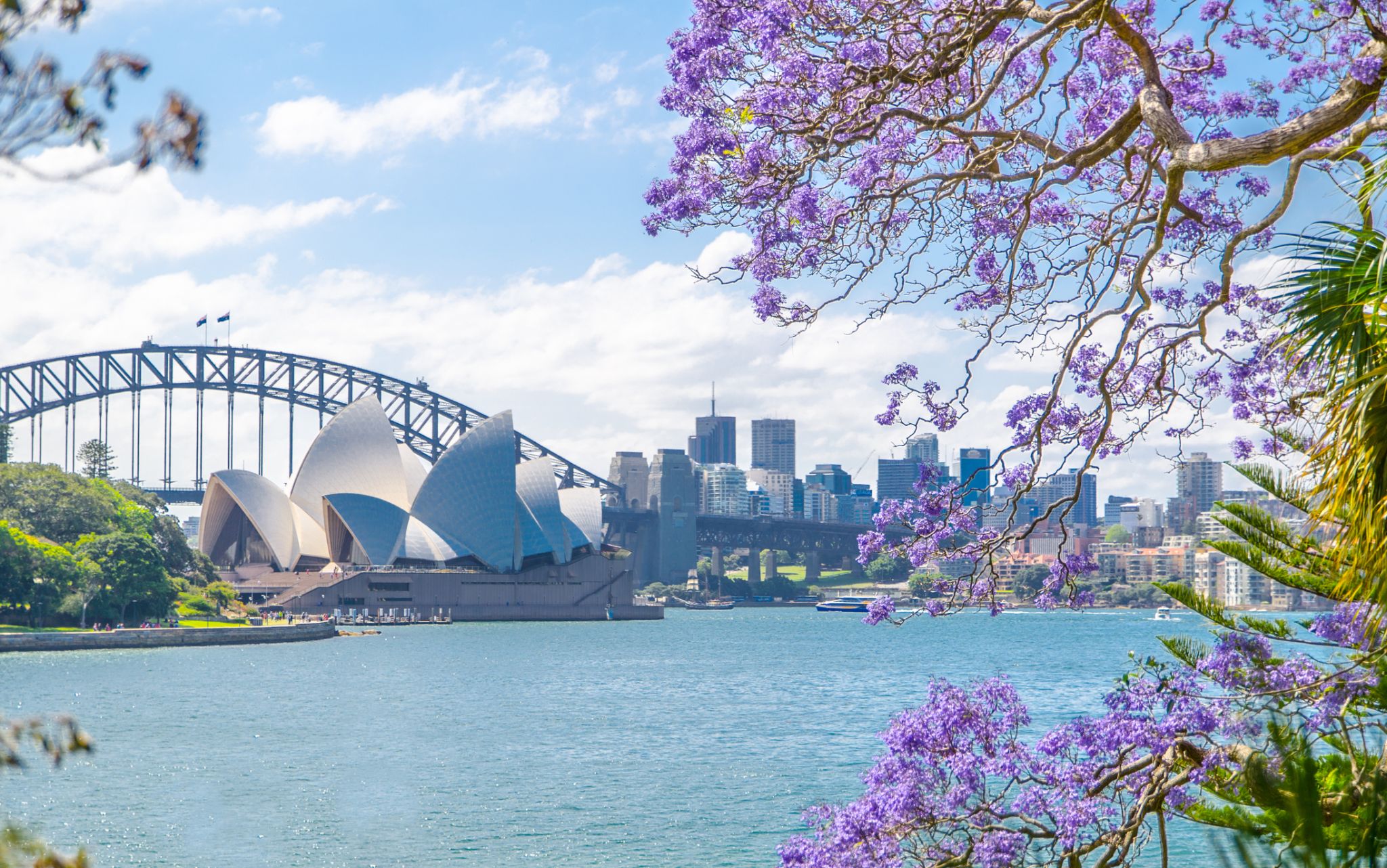
Sydney is the state capital of New South Wales and the most populous city in Australiaand Oceania. Located on Australia's east coast, the metropolis surrounds Port Jackson and extends about 70 km (43.5 mi) on its periphery towards the Blue Mountains to the west, Hawkesbury to the north, and Macarthur to the south. Sydney is made up of 658 suburbs, 40 local government areas and 15 contiguous regions. Residents of the city are known as "Sydneysiders". As of June 2017, Sydney's estimated metropolitan population was 5,131,326, and is home to approximately 65% of the state's population.
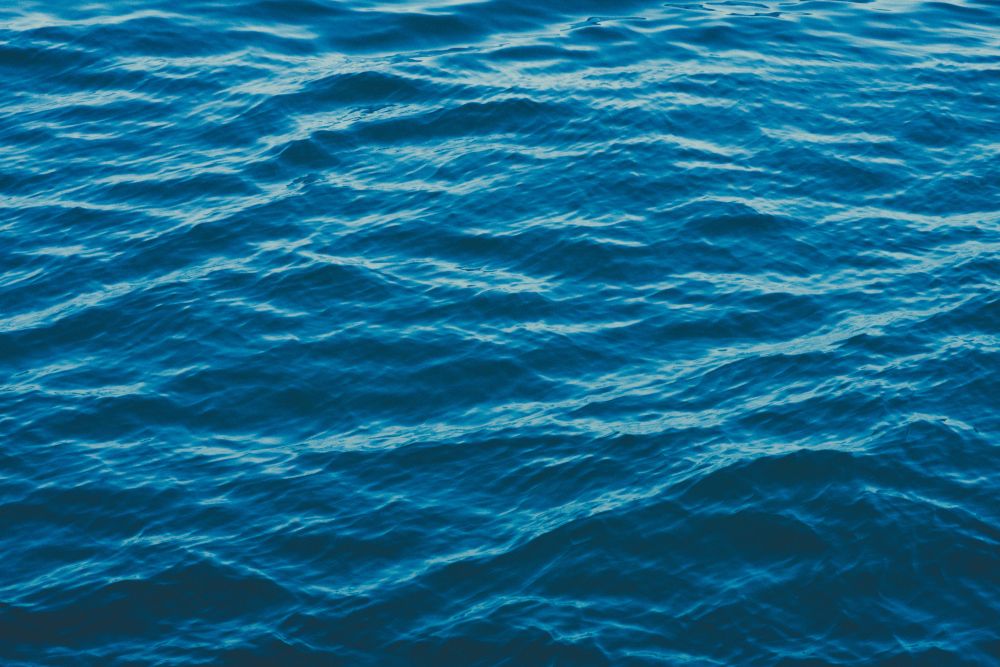
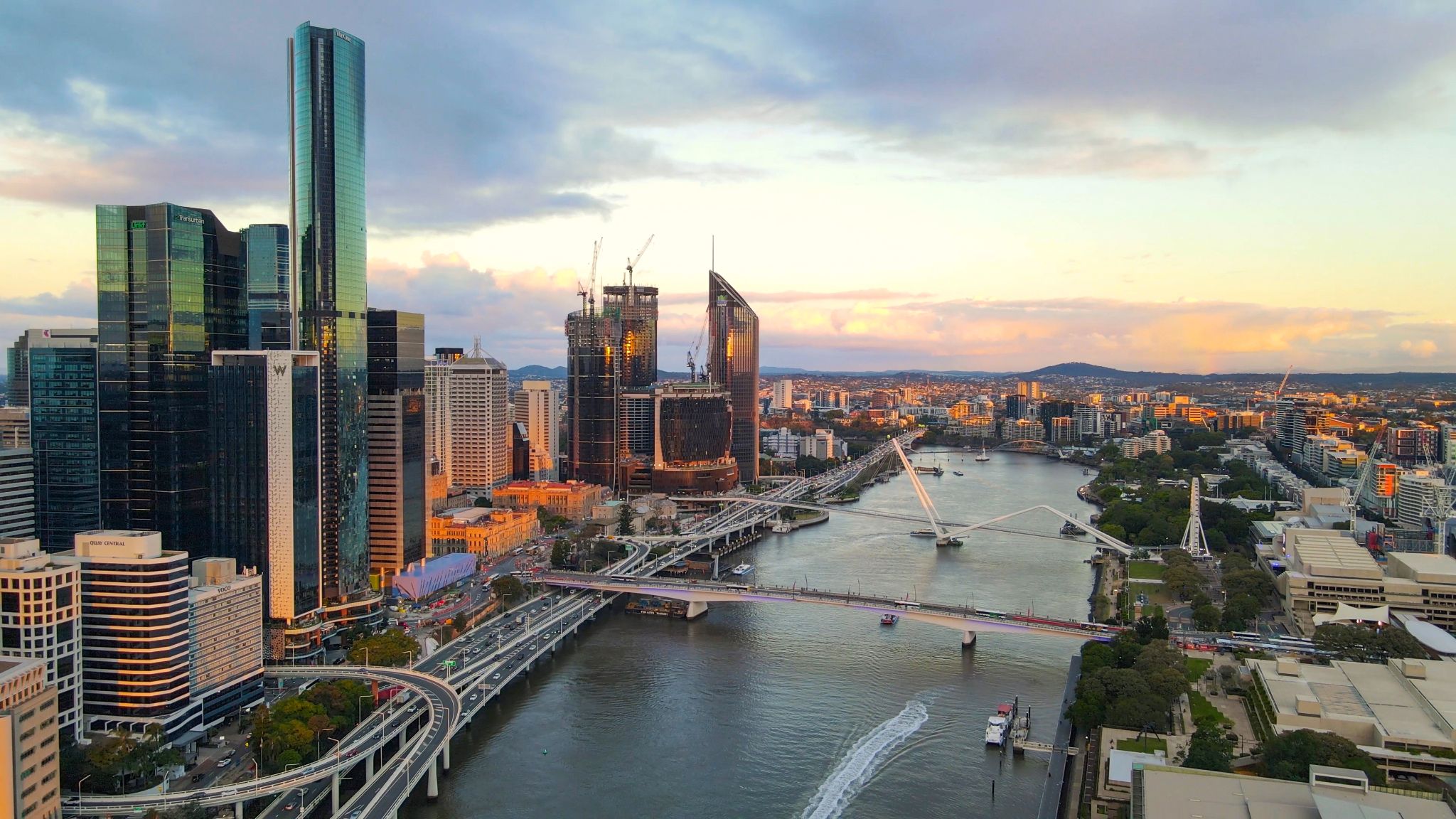

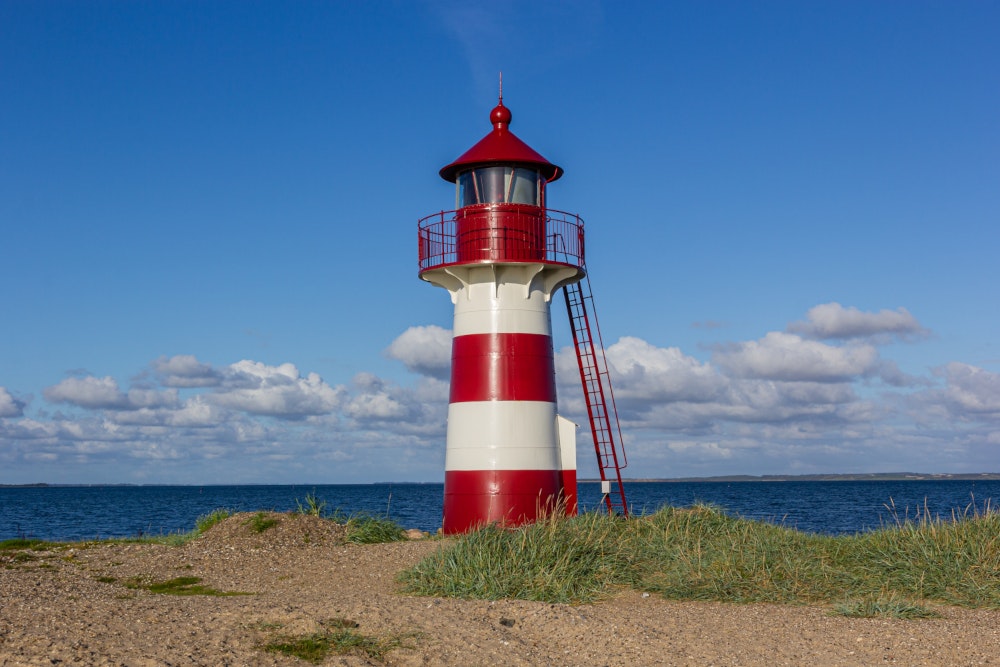
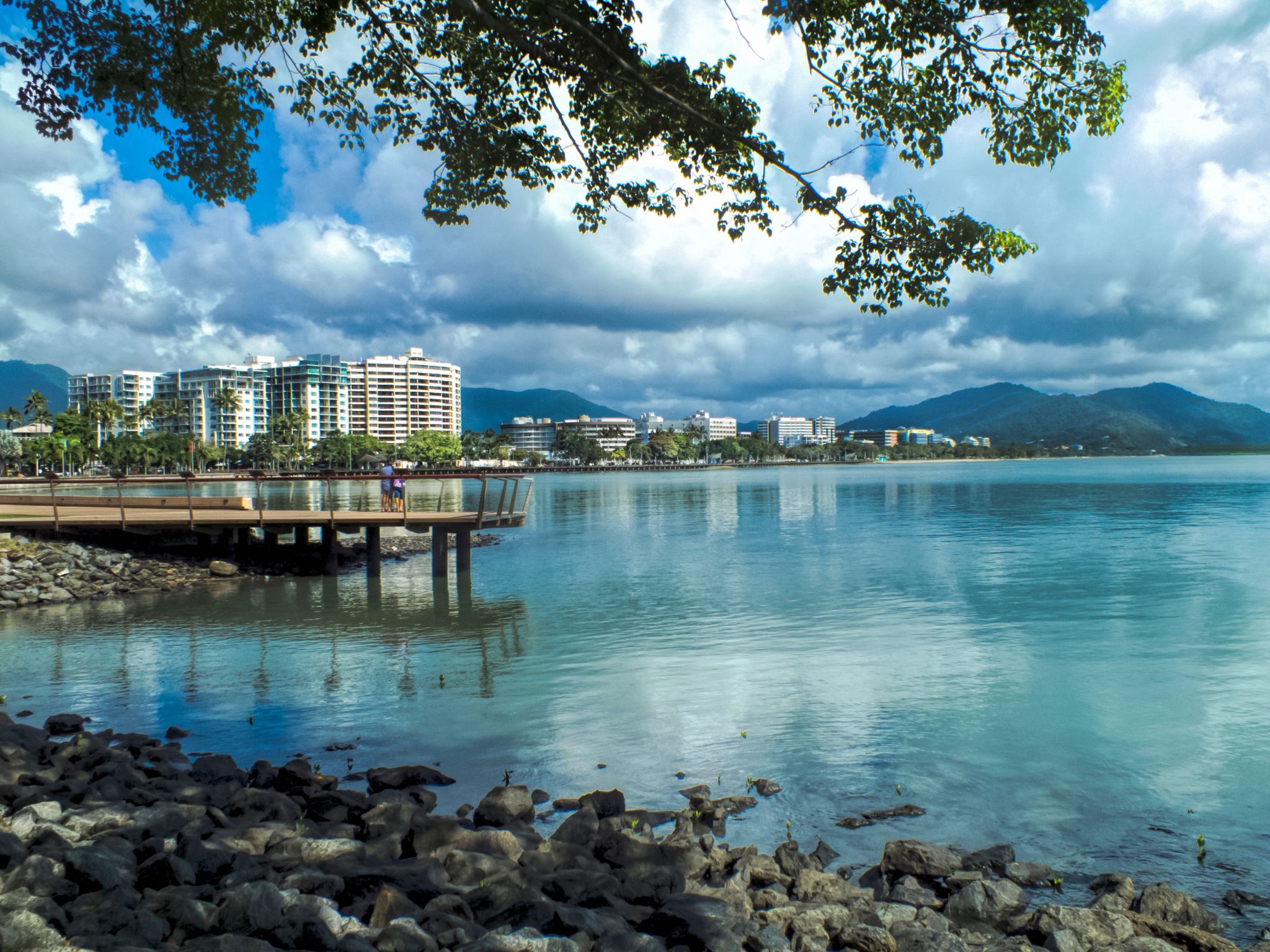
Cairns City is the suburb at the centre of Cairns in the local government area of Cairns Region, Queensland, Australia.It can also be referred to as the Cairns Central Business District (CBD). In the 2011 census, the population of Cairns City was 2,737 people.
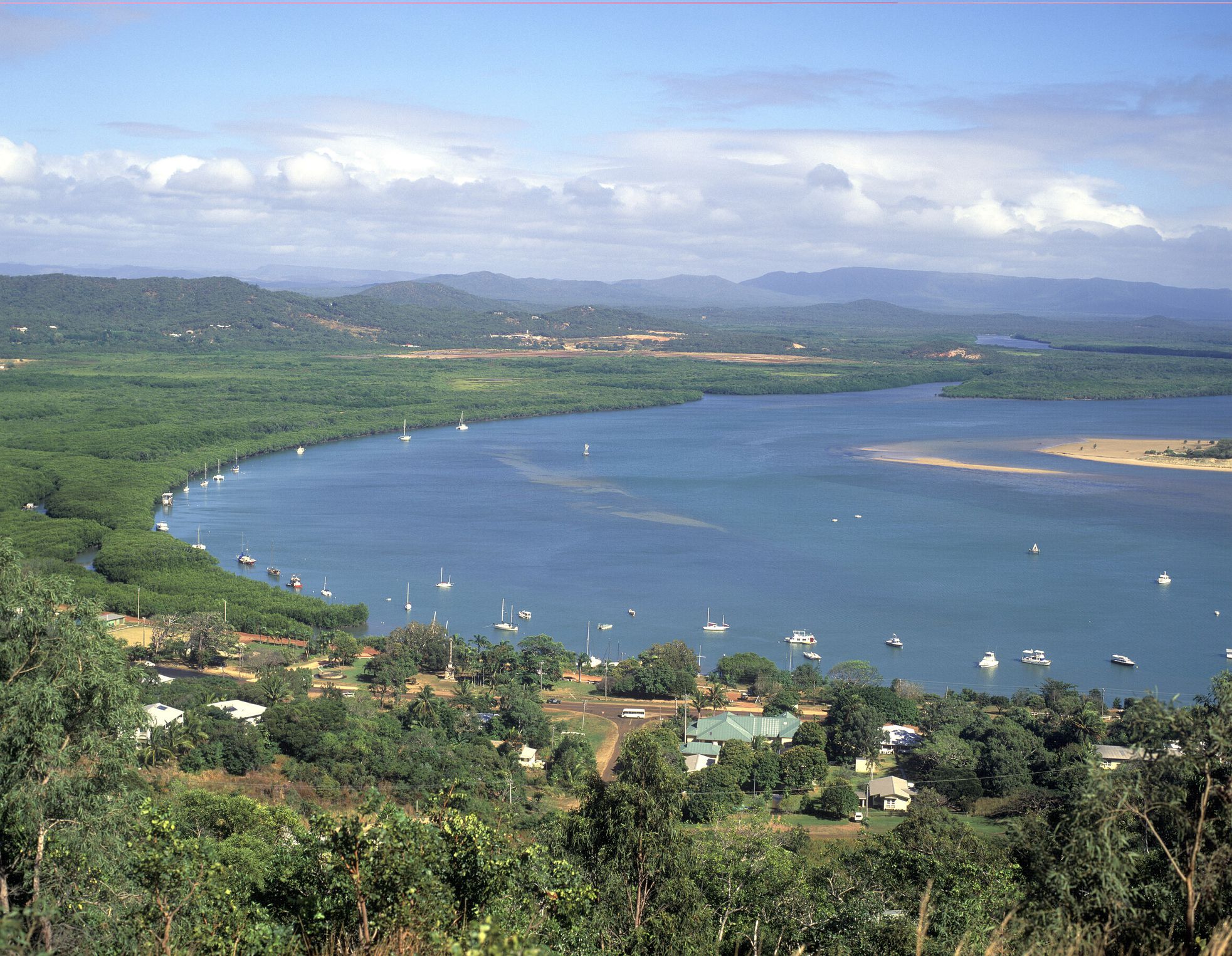
Cooktown is a historic town located in the north of Queensland, Australia, along the Endeavour River. The town became a significant stop in the exploration of Australia during Captain James Cook's visit in 1770. Today, Cooktown attracts tourists with its unique atmosphere, blending the heritage of early European explorers with stunning natural landscapes. Visitors can explore the James Cook Museum, which details the history of exploration in the region, and enjoy strolls along picturesque waterfronts and tropical gardens.
In addition to its historical attractions, Cooktown is renowned for its nature. Surrounding the town are numerous nature reserves and parks where tourists can enjoy trekking, wildlife watching, and exploring diverse ecosystems. Beautiful beaches, such as Portland Road, offer opportunities for relaxing getaways and water sports. Cooktown is the perfect destination for those seeking tranquility and the natural beauty of Australia's northern coastline, while also learning about the region's rich historical heritage.


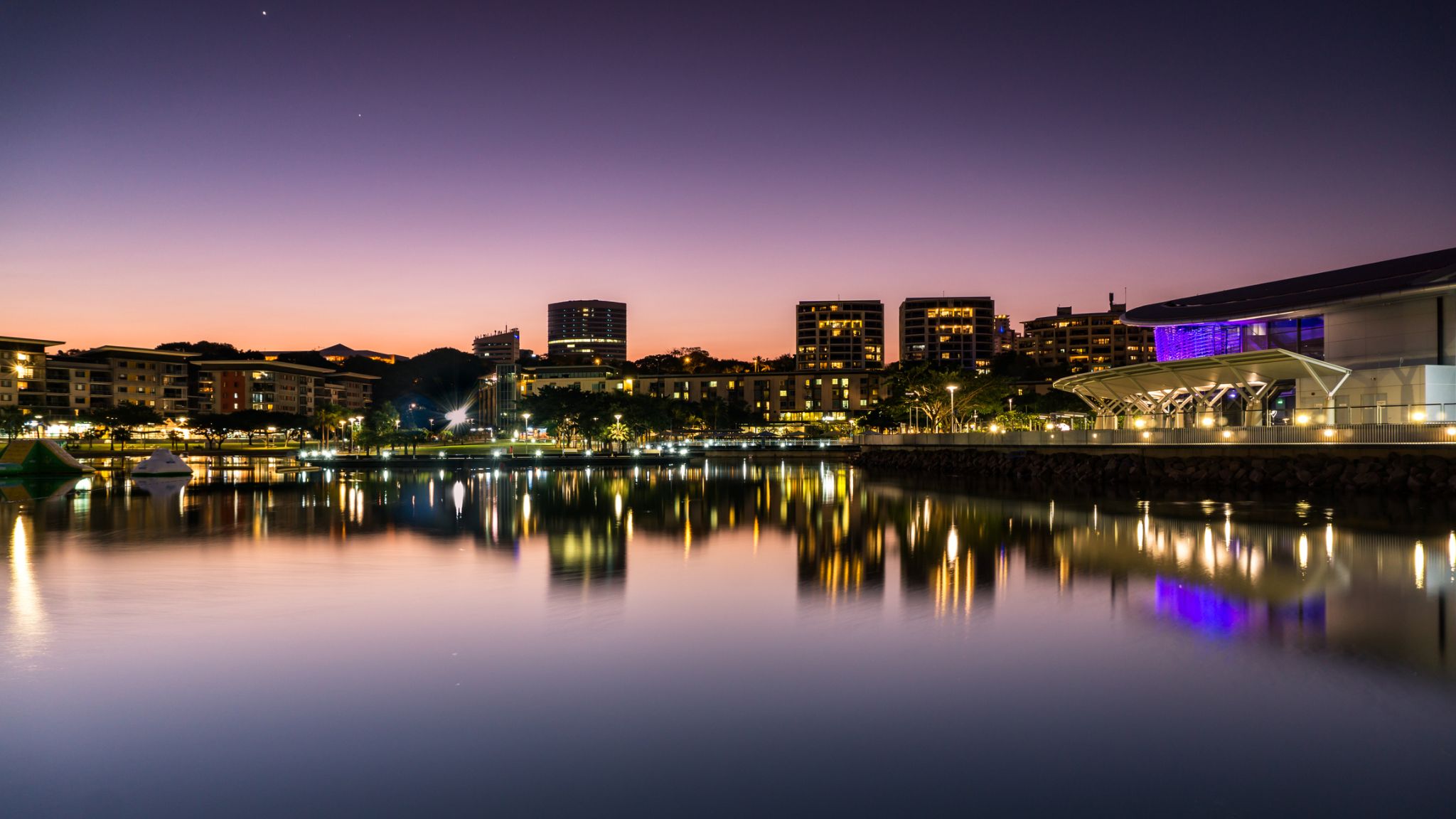
Darwin is the capital city of the Northern Territory of Australia, situated on the Timor Sea. It is the largest city in the sparsely populated Northern Territory, with a population of 145,916. It is the smallest and most northerly of the Australian capital cities, and acts as the Top End's regional centre.

Darwin is the capital city of the Northern Territory of Australia, situated on the Timor Sea. It is the largest city in the sparsely populated Northern Territory, with a population of 145,916. It is the smallest and most northerly of the Australian capital cities, and acts as the Top End's regional centre.


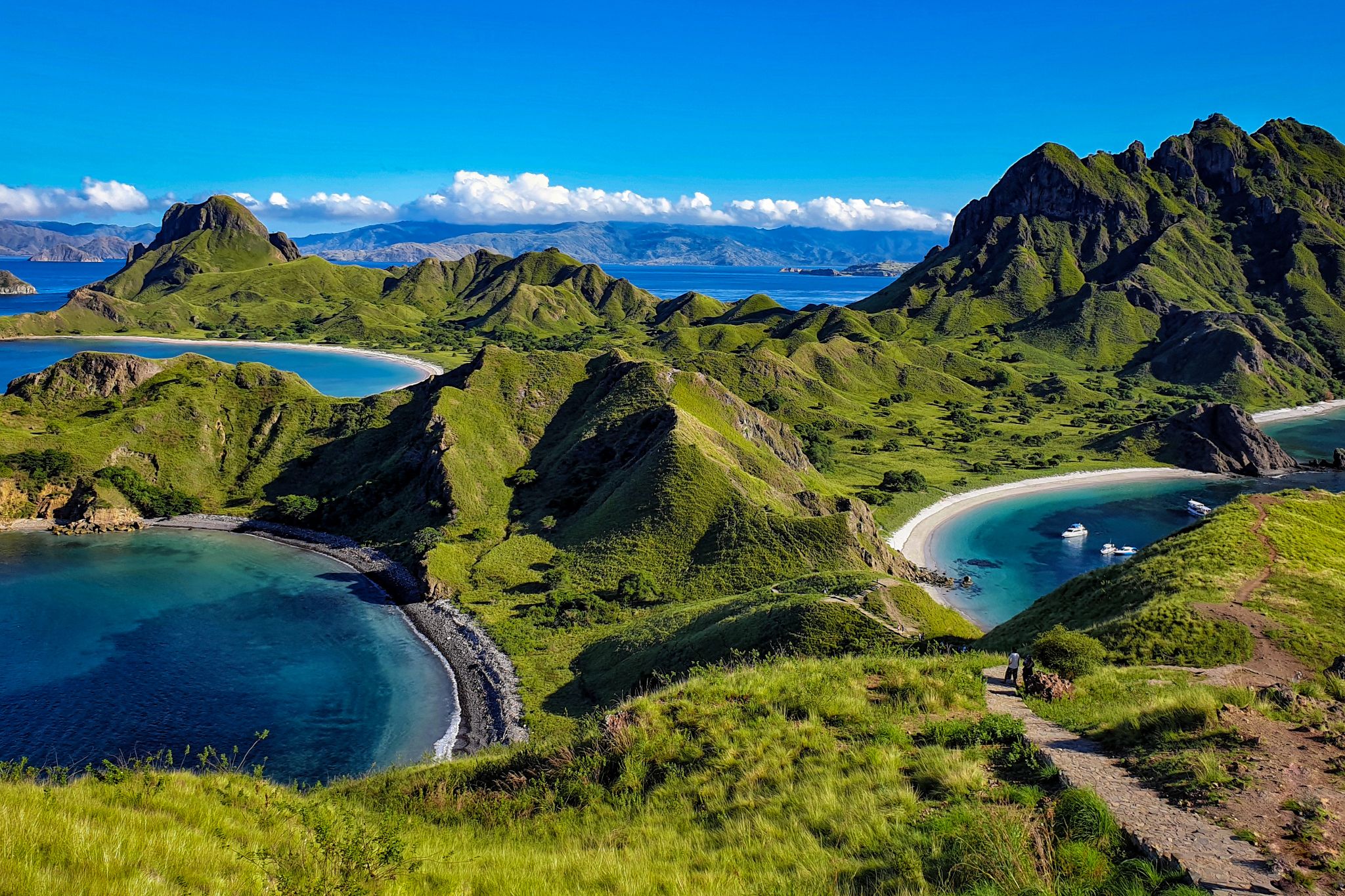
Komodo is one of the 17,508 islands that comprise the Republic of Indonesia. The island is particularly notable as the habitat of the Komodo dragon, the largest lizard on Earth, which is named after the island. Komodo Island has a surface area of 390 square kilometres and a human population of over two thousand. The people of the island are descendants of former convicts who were exiled to the island and who have mixed with Bugis from Sulawesi. The people are primarily adherents of Islam but there are also Christian and Hindu congregations.
Komodo is part of the Lesser Sunda chain of islands and forms part of the Komodo National Park. In addition, the island is a popular destination for diving. Administratively, it is part of the East Nusa Tenggara province.
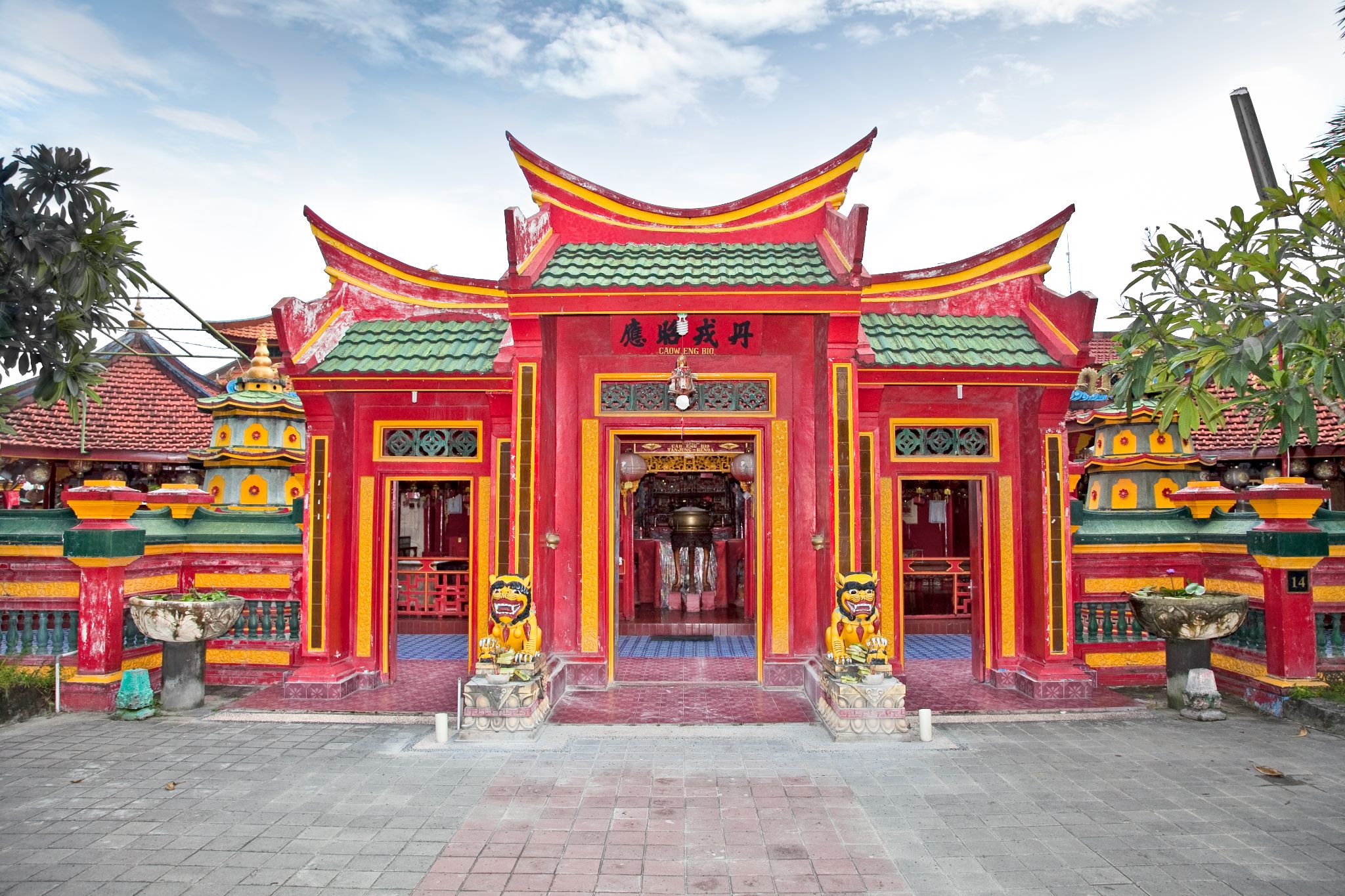

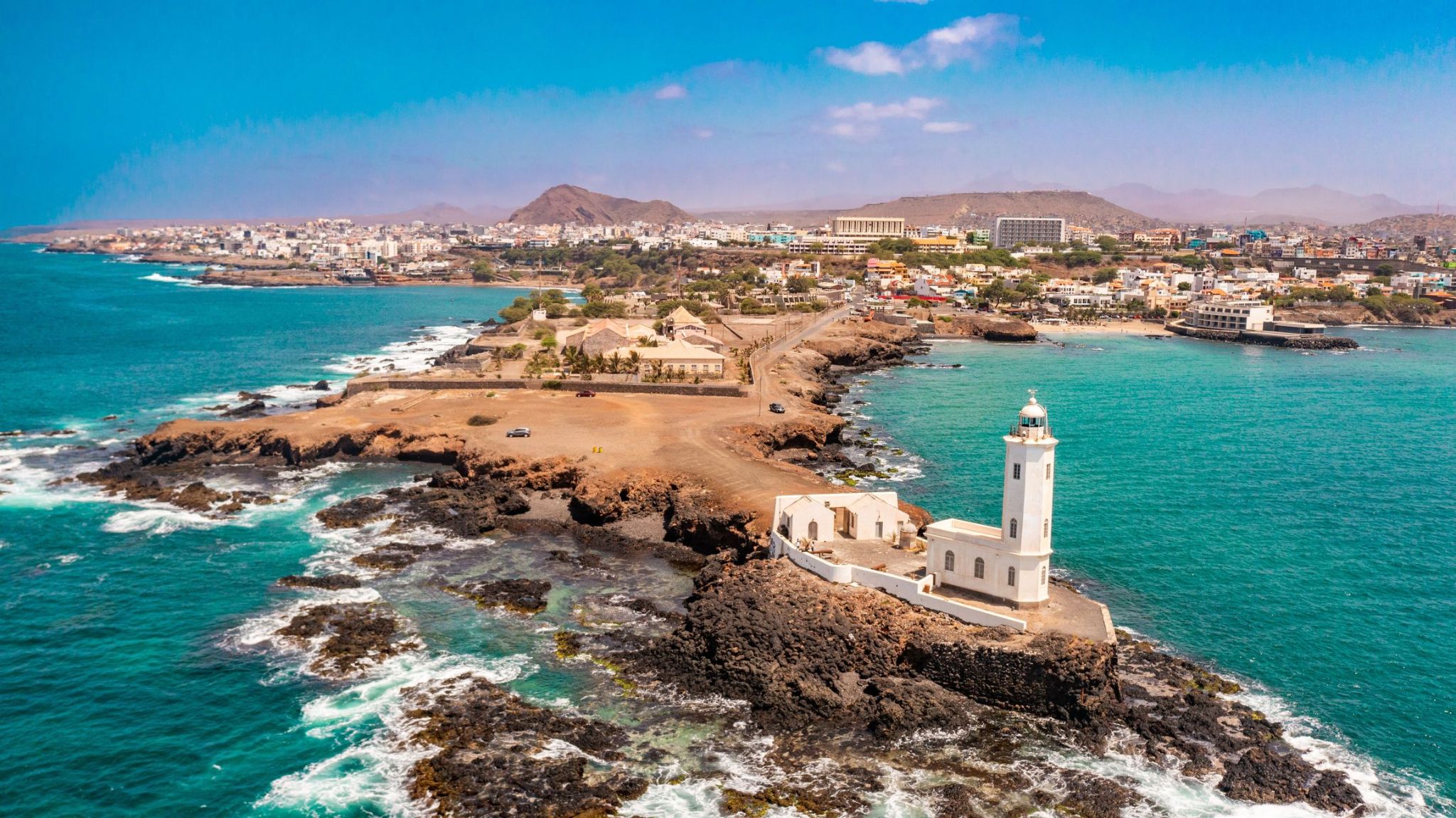







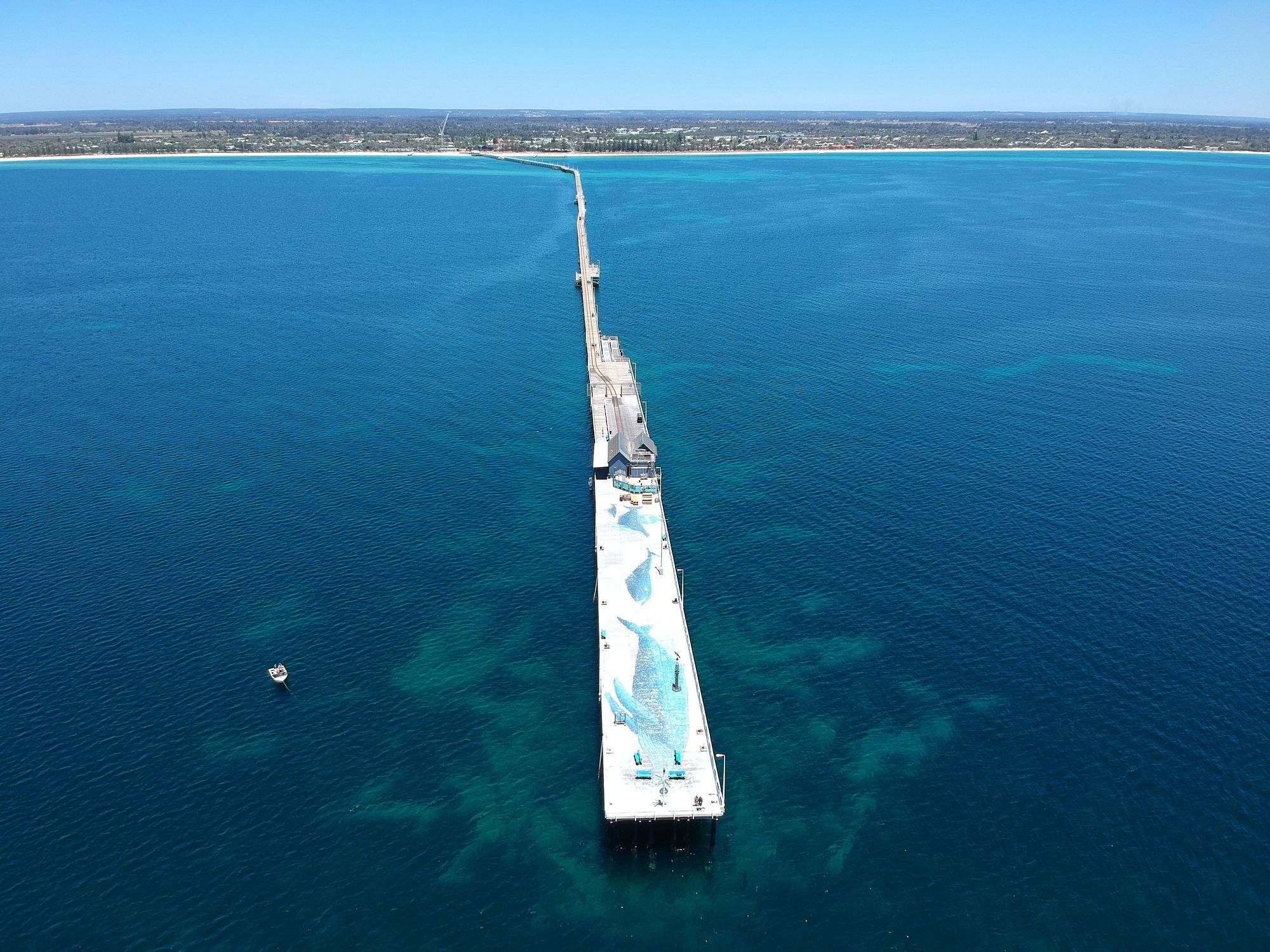
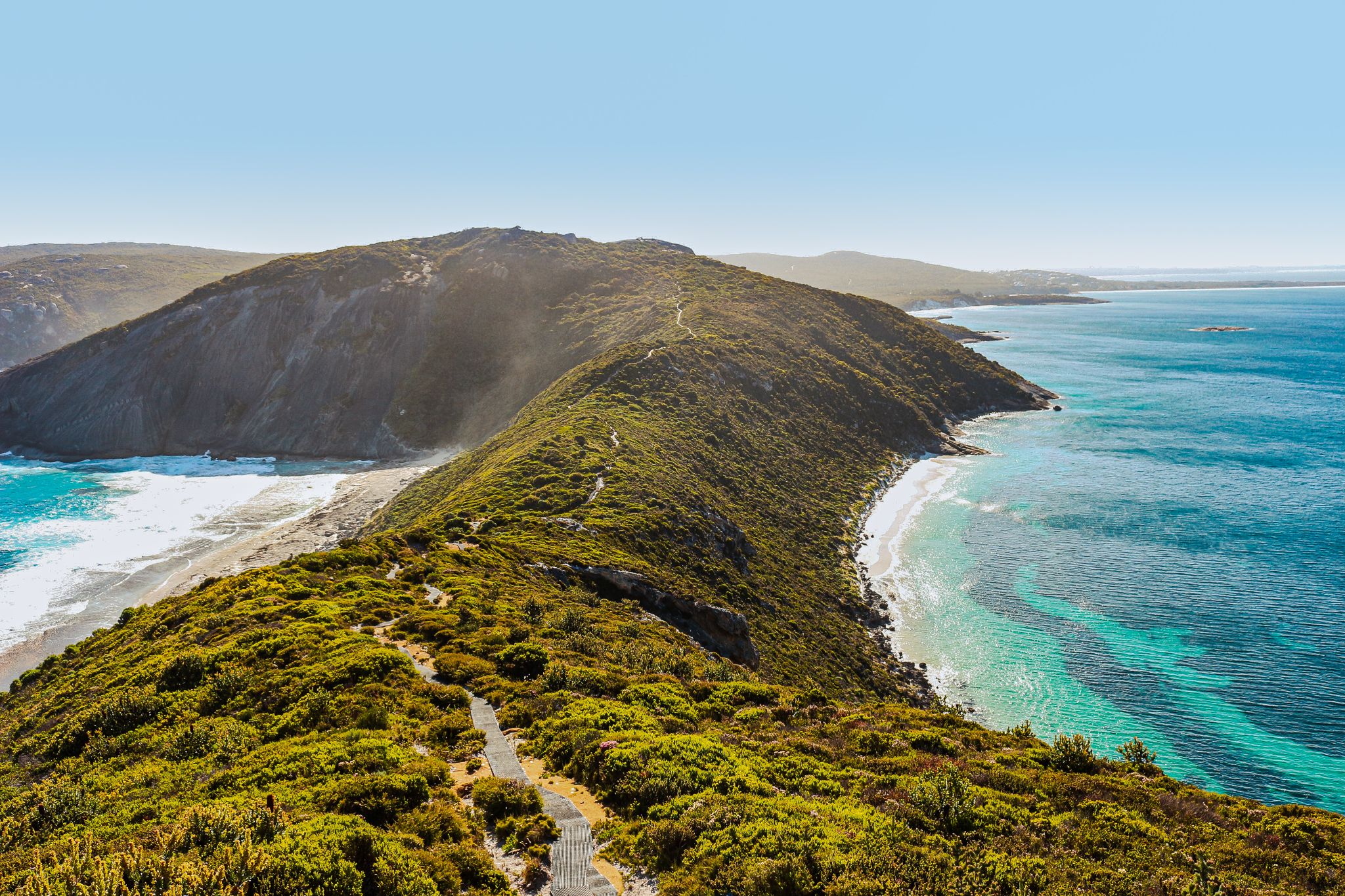
Albany is a port city in the Great Southern region of Western Australia, 418 km SE of Perth, the state capital. Albany is the oldest colonial settlement in Western Australia, predating Perth and Fremantle by over two years.
The city centre is at the northern edge of Princess Royal Harbour, which is a part of King George Sound. The central business district is bounded by Mount Clarence to the east and Mount Melville to the west. The city is in the local government area of the City of Albany.



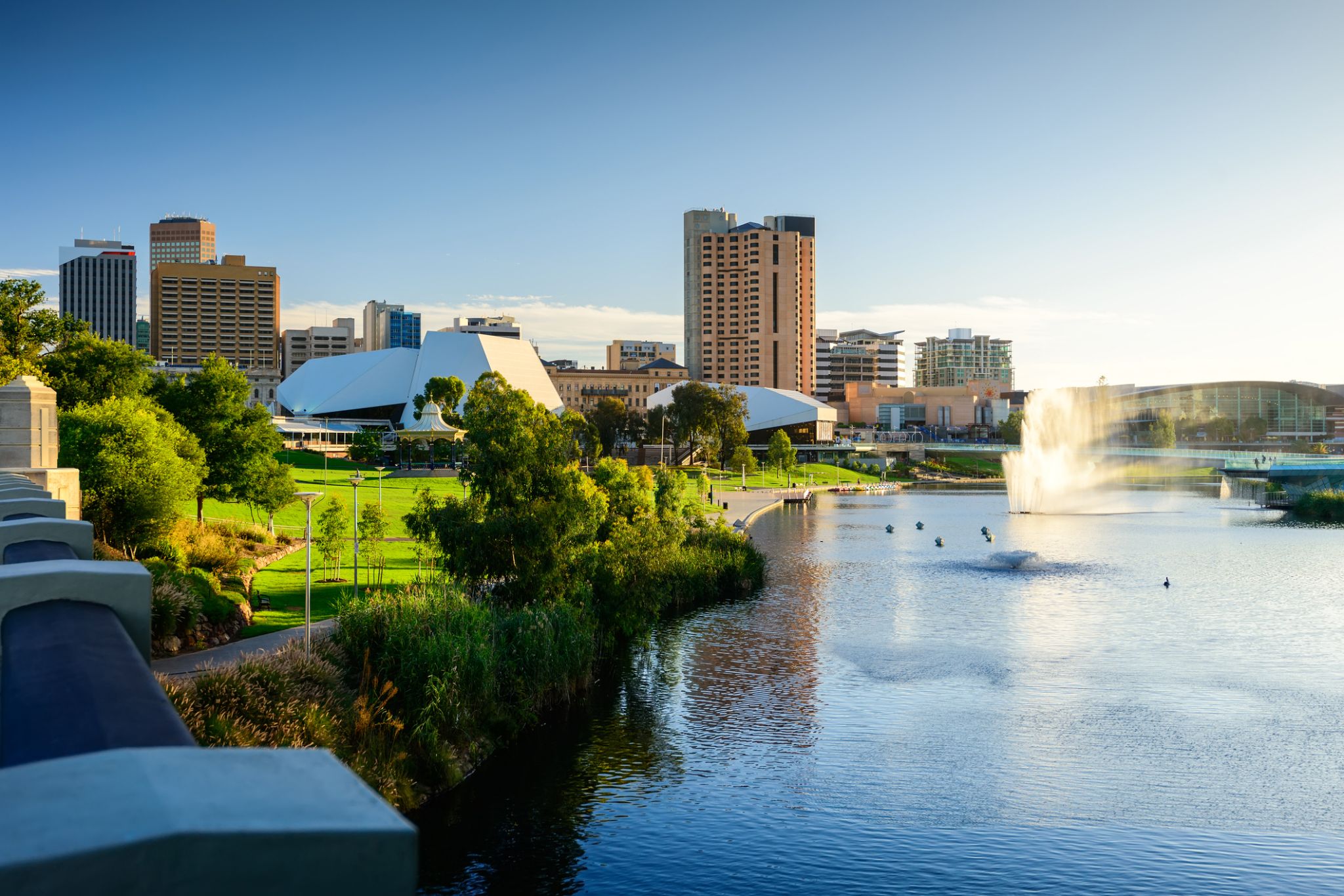
Adelaide is the capital city of the state of South Australia, and the fifth-most populous city of Australia. In June 2017, Adelaide had an estimated resident population of 1,333,927. Adelaide is home to more than 75 percent of the South Australian population, making it the most centralised population of any state in Australia.

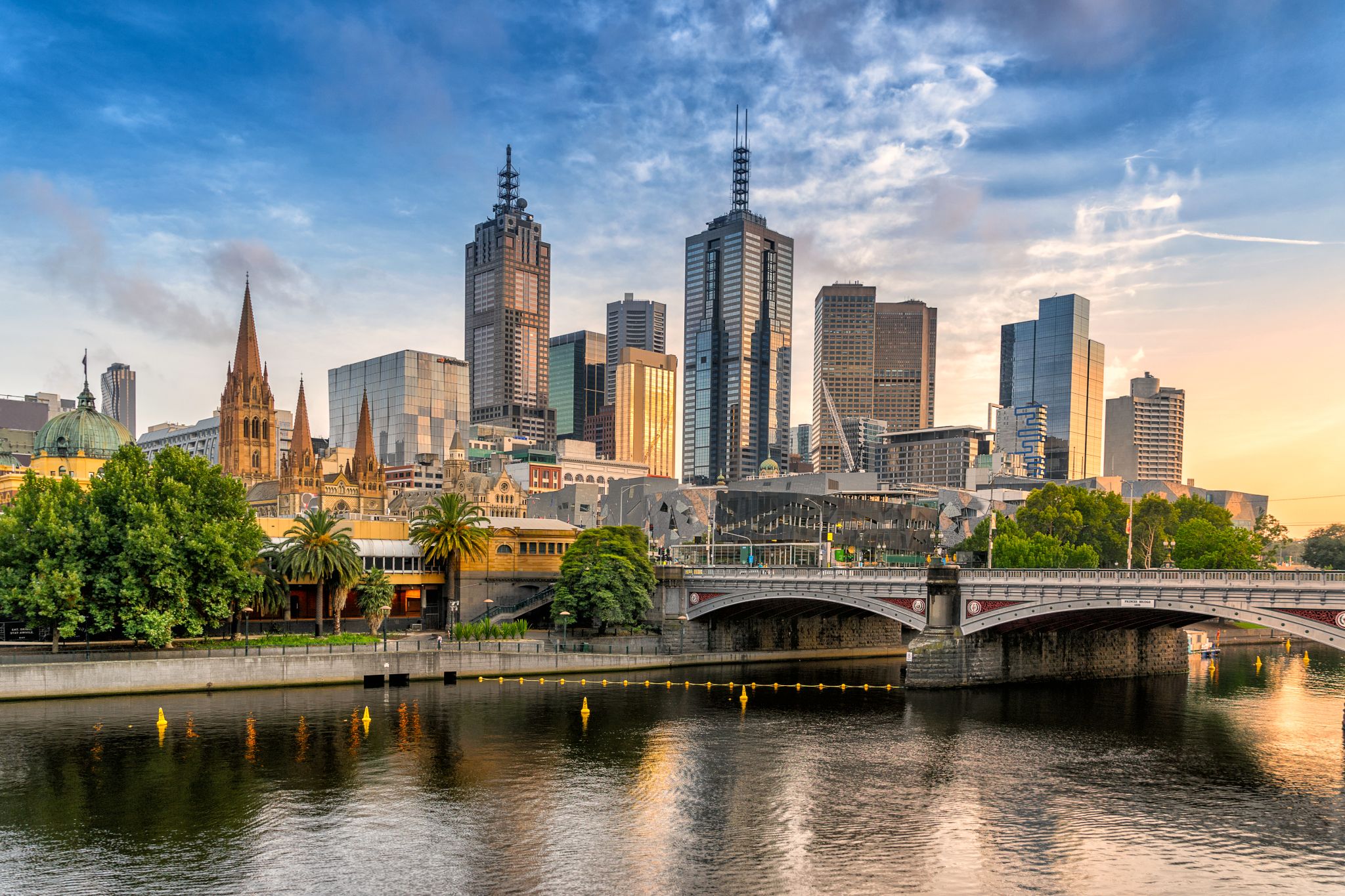
Melbourne is the capital and most populous city of the Australian state of Victoria, and the second most populous city in Australia and Oceania. Its name refers to an urban agglomeration of 9,992.5 km2 (3,858.1 sq mi), comprising a metropolitan area with 31 municipalities, and is also the common name for its city centre. The city occupies much of the coastline of Port Phillip bay and spreads into the hinterlands towards the Dandenong and Macedon ranges, Mornington Peninsula and Yarra Valley. It has a population of approximately 4.9 million (19% of the population of Australia), and its inhabitants are referred to as "Melburnians".
The city was founded on 30 August 1835, in what was the British colony of New South Wales, by free settlers from the colony of Van Diemen’s Land. It was incorporated as a Crown settlement in 1837 and named in honour of the British Prime Minister, William Lamb, 2nd Viscount Melbourne. It was declared a city by Queen Victoria in 1847, after which it became the capital of the new colony of Victoria in 1851. In the wake of the 1850s Victorian gold rush, the city entered the "Marvellous Melbourne" boom period, transforming into one of the most important cities in the British Empire and one of the largest and wealthiest in the world. After the federation of Australia in 1901, it served as interim seat of government of the new nation until Canberra became the permanent capital in 1927. Today, it is a leading financial centre in the Asia-Pacific region and ranks 20th in the Global Financial Centres Index.




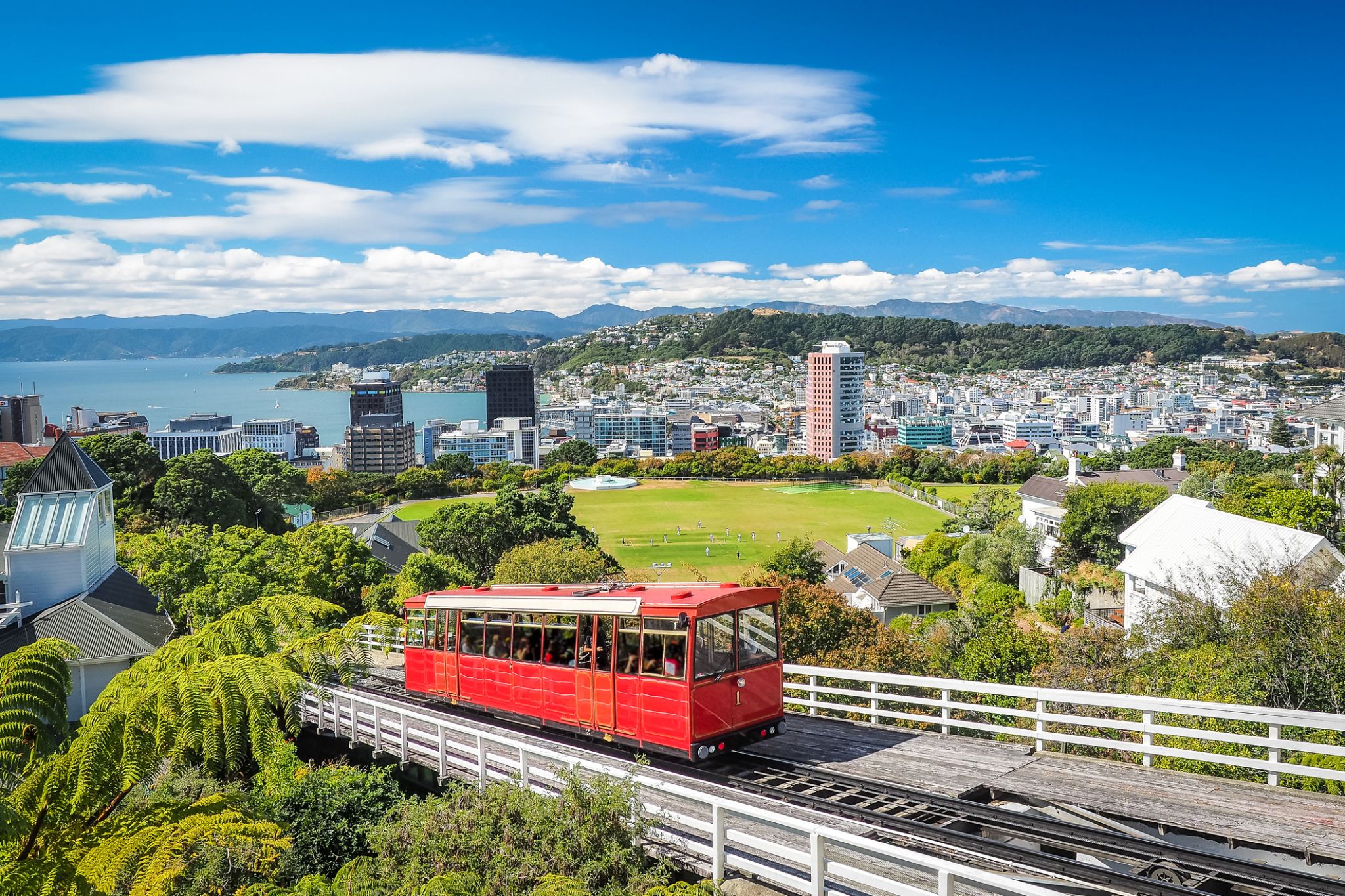
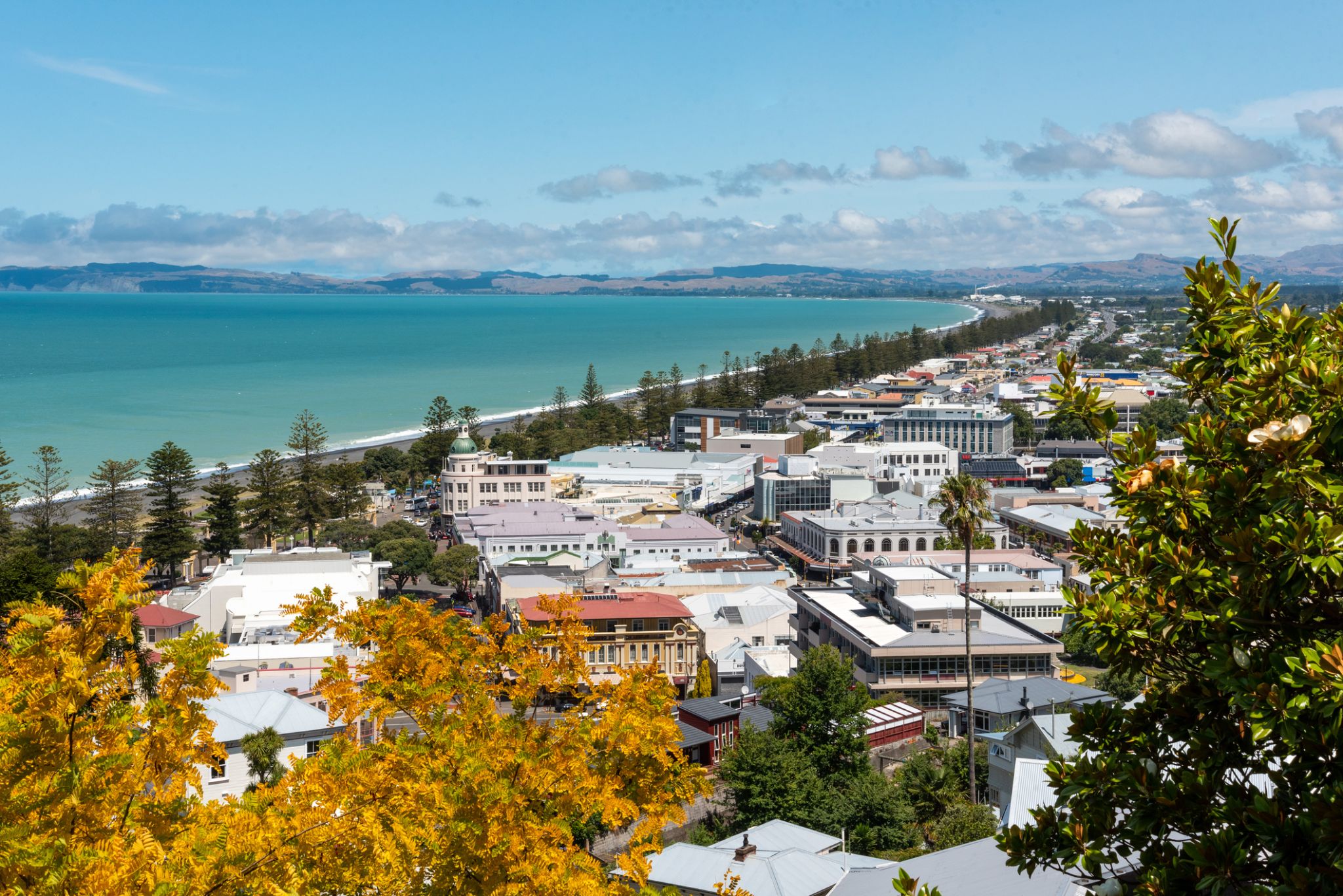
Napier is a New Zealand city with a seaport, located in Hawke's Bay on the eastern coast of the North Island. The population of Napier is about 63,900 as of the June 2018. About 18 kilometres (11 mi) south of Napier is the inland city of Hastings. These two neighbouring cities are often called "The Bay Cities" or "The Twin Cities" of New Zealand. The total population of the Napier-Hastings Urban Area is 134,500 people, which makes it the sixth-largest urban area in New Zealand, closely followed by Dunedin (122,000), and trailing Tauranga(141,600).
Napier is about 320 kilometres (200 mi) northeast of the capital city of Wellington. Napier (63,900) has a smaller population than its neighbouring city of Hastings (70,600) but is seen as the main centre due to it being closer in distance to both the seaport and the main airport that service Hawke's Bay, and Hastings' population figure includes 13,000 people living in Havelock North, which is often considered a town in its own right. The City of Napier has a land area of 106 square kilometres (41 sq mi) and a population density of 540.0 per square kilometre.
Napier is the nexus of the largest wool centre in the Southern Hemisphere, and it has the primary export seaport for northeastern New Zealand – which is the largest producer of apples, pears, and stone fruit in New Zealand. Napier has also become an important grape and wine production area, with the grapes grown around Hastings and Napier being sent through the Port of Napier for export. Large amounts of sheep's wool, frozen meat, wood pulp, and timber also pass through Napier annually for export. Smaller amounts of these materials are shipped via road and railway to the large metropolitan areas of New Zealand itself, such as Auckland, Wellington and Hamilton.
Napier is a popular tourist city, with a unique concentration of 1930s Art Deco architecture, built after much of the city was razed in the 1931 Hawke's Bay earthquake. It also has one of the most photographed tourist attractions in the country, a statue on Marine Parade called Pania of the Reef. Thousands of people flock to Napier every February for the Tremains Art Deco Weekend event, a celebration of its Art Deco heritage and history. Other notable tourist events attracting many outsiders to the region annually include F.A.W.C! Food and Wine Classic events, and the Mission Estate Concert at Mission Estate and Winery in the suburb of Taradale.
